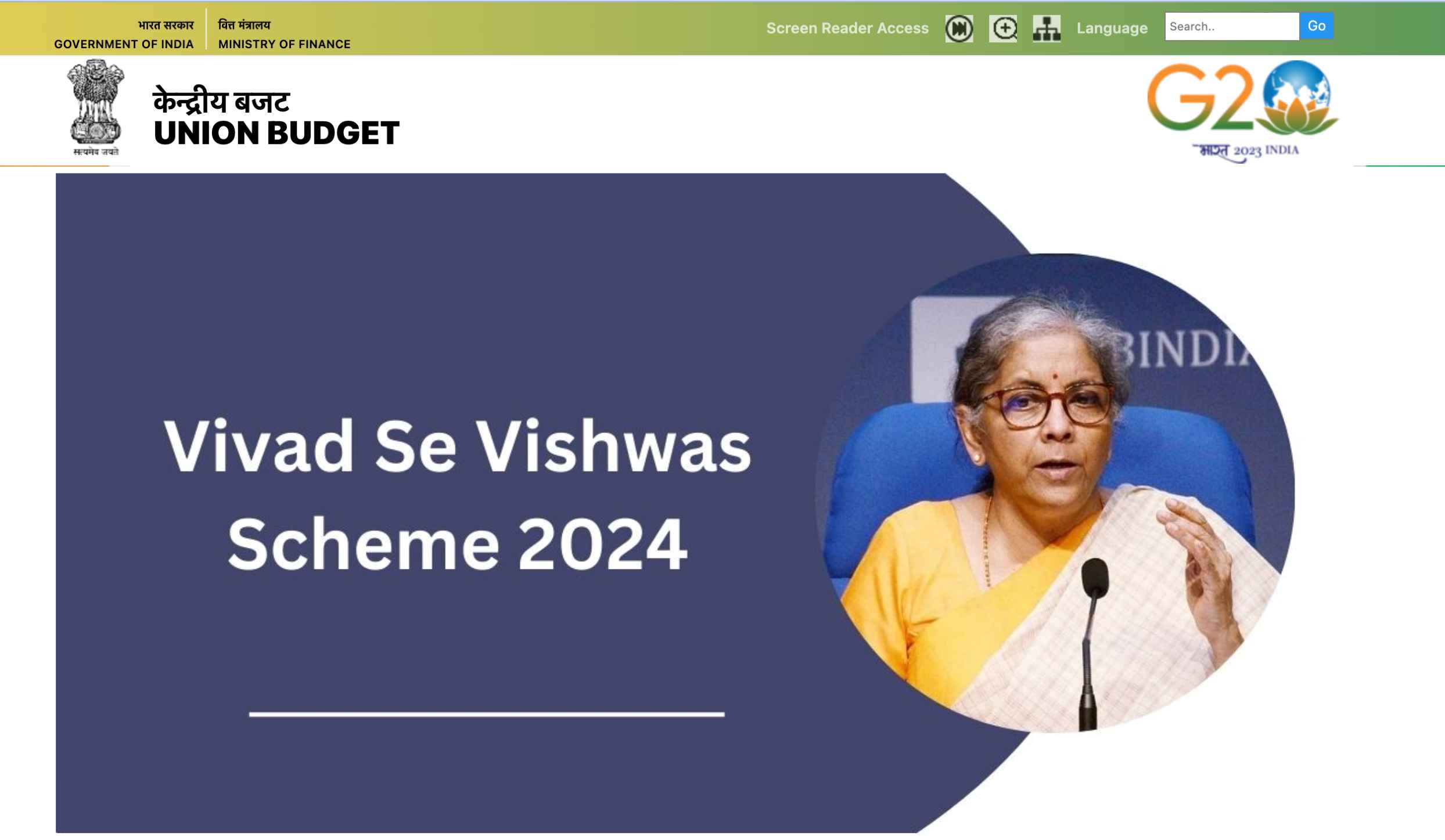Official Notification 2025 : Whatsapp Channel
Join Now
Apply Online for Vivad Se Vishwas Scheme 2024. Check Eligibility, Benefits, Status Online.
vivad se vishwas scheme 2024
Overview of the 2024 – Vivad Se Vishwas Scheme :
- Scheme Introduction : This Tax Alert provides an overview of the proposed Direct Tax Vivad Se Vishwas Scheme, 2024 (2024 Scheme) included in the Finance (No. 2) Bill, 2024 (FB 2024) as part of the Union Budget 2024 announced on 23 July 2024.
- Scope of Settlement : The 2024 Scheme allows for the resolution of disputes pending under Income-tax Laws (ITL) as on 22 July 2024. It mirrors elements of the earlier Direct Tax Vivad Se Vishwas Act, 2020 (2020 Scheme) concerning applicability, procedural framework, and dispute resolution methods.
- Commencement and Sunset Dates : Specific dates for taxpayers to commence dispute settlement and the scheme’s expiry are yet to be specified.
Objective of Vivad Se Vishwas Scheme :
- Main Objective : The primary aim of the Vivad Se Vishwas Scheme is to facilitate the resolution of long-pending tax disputes under the purview of the Indian Tax Department, thereby providing relief to taxpayers.
- Digital Tax Facilities : Recently, the Ministry of Finance has made all tax services faceless, allowing taxpayers to now make tax payments online.
- Challenges in Tax Filing : During the process of filling online income tax forms, many taxpayers inadvertently make small errors or forget to file returns on time, resulting in the imposition of interest or penalties by the Income Tax Department. Over time, these cases often escalate into disputes.
- Introduction of the Scheme : To address these issues, the Indian Ministry of Finance launched the Vivad Se Vishwas Scheme, offering taxpayers the opportunity to settle taxes without interest or penalties.
Vivad Se Vishwas Scheme Latest Update :
- Scheme Origins: The Vivad Se Vishwas Scheme was originally launched in 2020 during the COVID-19 pandemic, taking into consideration the economic conditions of the people. Initially scheduled to end by 31 December 2023, its extension was decided by the government owing to its positive outcomes and benefits.
- New Portal Introduction: A new portal has been initiated by the government to facilitate the operation of this scheme. Considering approximately 4,83,000 direct tax cases pending nationwide, the scheme will remain active for some more time to resolve these cases.
Vivad Se Vishwas Scheme Important Documents :
- Documents Required for MSMEs: MSME (Micro, Small, and Medium Enterprises) owners need to submit the following documents to avail the benefits of the Vivad Se Vishwas Scheme:
- PAN Card (Permanent Account Number)
- Business Registration Number
- Registration Number of the company if the applicant is a public or private company
- MSME registration number if the company is registered under MSME
Vivad Se Vishwas Scheme Online Application :
- Application Process for MSMEs: MSMEs must complete the application process for the Vivad Se Vishwas Scheme as follows:
- Firstly, the applicant needs to register on the official website of G MSME.
- After registration, the applicant must fill in all necessary details.
- Post filling in details, the applicant needs to verify their registered MSME.
- Upon successful verification, the applicant must update the payment details on the portal of the nodal officer.
Eligibility Criteria forVivad Se Vishwas Scheme :
Taxpayers can utilize the 2024 Scheme in the following scenarios:
- Appeals, writ petitions, special leave petitions (SLPs) pending before appellate authorities, High Court (HC), or Supreme Court (SC) related to disputed tax, interest, penalty, or fees.
- Objections filed before the Dispute Resolution Panel (DRP) where directions are awaited.
- DRP has issued directions, but the tax authority has not yet passed an assessment order accordingly.
- Revision applications filed by taxpayers before the Commissioner.
CLICK HERE to access the full list of schemes.
- vivad se vishwas scheme 2024
- Overview of the 2024 – Vivad Se Vishwas Scheme :
- Objective of Vivad Se Vishwas Scheme :
- Vivad Se Vishwas Scheme Latest Update :
- Vivad Se Vishwas Scheme Important Documents :
- Vivad Se Vishwas Scheme Online Application :
- Eligibility Criteria forVivad Se Vishwas Scheme :
- Announcement for Settlement of Tax Disputes Amounting to Rs 1.5 Crore – Through Vishwas se vivad :
